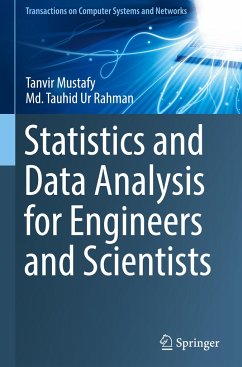
Principles of Statistics for Engineers and Scientists
Versandkostenfrei!
Nicht lieferbar
Principles of Statistics for Engineers and Scientists offers the same crystal clear presentation of applied statistics as Bill Navidi's Statistics for Engineers and Scientists text, in a manner especially designed for the needs of a one-semester course that focuses on applications. The text features a unique approach accentuated by an engaging writing style that explains difficult concepts clearly. By presenting ideas in the context of real-world data featured in plentiful examples, the book motivates students to understand fundamental concepts through practical examples found in industry and ...
Principles of Statistics for Engineers and Scientists offers the same crystal clear presentation of applied statistics as Bill Navidi's Statistics for Engineers and Scientists text, in a manner especially designed for the needs of a one-semester course that focuses on applications. The text features a unique approach accentuated by an engaging writing style that explains difficult concepts clearly. By presenting ideas in the context of real-world data featured in plentiful examples, the book motivates students to understand fundamental concepts through practical examples found in industry and research.











